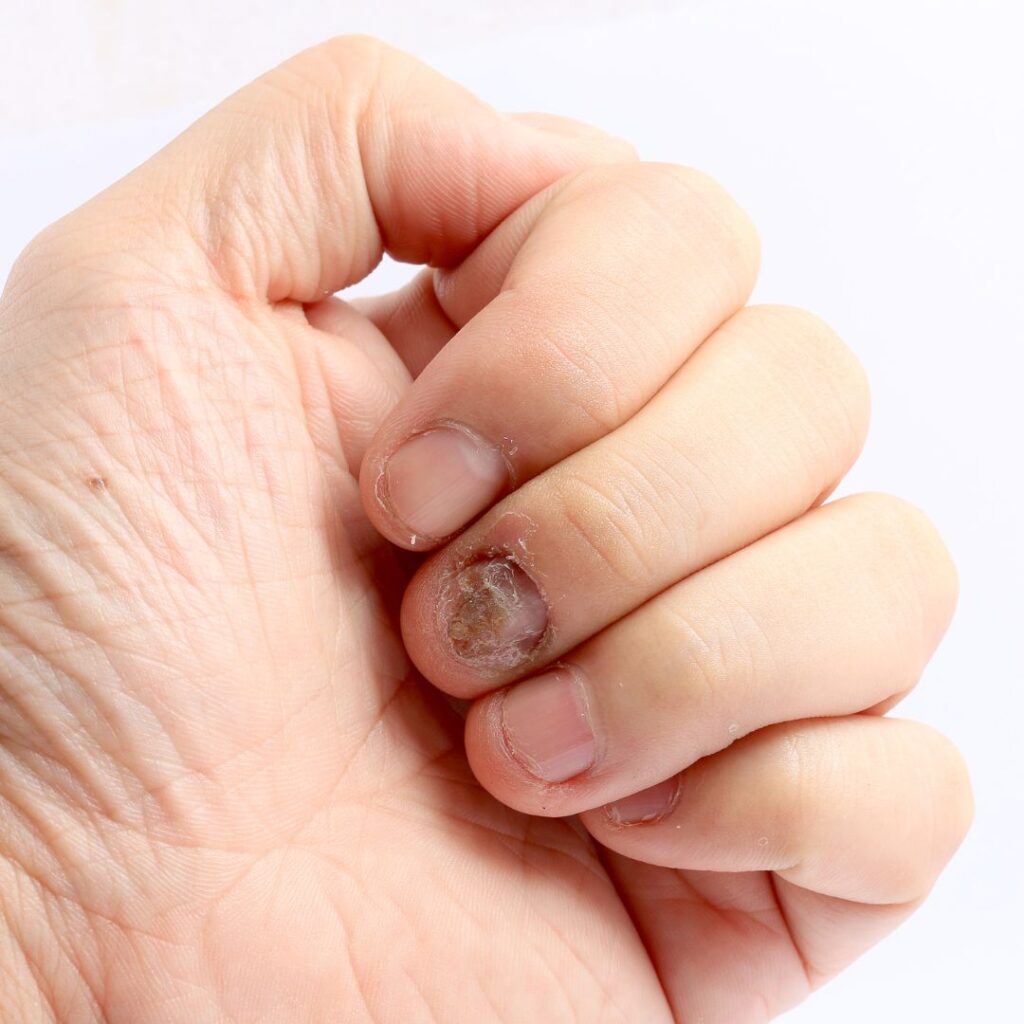Fungal Infections
Fungal infections are common skin conditions caused by fungi that flourish in warm and moist environments. These infections can affect different sections of the body, such as the feet, nails, and groin, and can cause symptoms such as itching, redness, and scaling.
We Treat Fungal Infections in Teens Adults Men Women
Fungal Infections in the US
Fungal infections are a common skin condition that affects millions of people around the US. They can cause a range of various symptoms, from mild irritation to severe discomfort, and can be challenging to treat if left unchecked. Learn more about the causes of fungal infections, the symptoms they cause, and the different treatment options available below.
Fungal Infections by the Numbers
Athlete’s Foot affects
Nail Fungal Infection affect up to
Board-Certified Providers
All Our Providers are Board-Certified and State-Licensed Medical Professionals.
Unmatched Expertise
Our Providers Have Years of Experience Diagnosing and Treating Skin Conditions.
Comprehensive Care
We Provide Medical Dermatology, Cosmetic Dermatology, and Aesthetic Services.
Qualified
Staff
Our Staff Is Ready to Help You and Your Family With All of Your Dermatological Needs.
Expert Dermatology Care for the Entire Family
Causes of Fungal Infections

Fungal infections are caused by fungi that thrive in warm, moist environments. These fungi can be found on the skin, in the nails, and in other parts of the body, such as the mouth and genitals. The most frequent types of fungi that cause skin infections are dermatophytes, yeasts, and molds.
Dermatophytes are fungi that live on the keratinized tissue of the skin, nails, and hair. They are responsible for the majority of fungal infections on the skin, including ringworm, athlete’s foot, and jock itch. Yeasts, on the other hand, are single-celled fungi that can cause infections in moist areas of the body, such as the mouth, genitals, and underarms. Finally, molds are multicellular fungi that can cause skin infections in people with weakened immune systems.
Symptoms of Fungal Infections
The symptoms of fungal infections can vary depending on the type of infection and the area of the body affected. Some common symptoms include:
- Itching
- Redness
- Scaling
- Blistering
- Cracking or peeling skin
- Thick, discolored nails
- Discharge or odor (in some cases)
In some cases, fungal infections can spread to other parts of the body or lead to complications, such as cellulitis (a bacterial skin infection) or sepsis (a life-threatening condition caused by an infection in the bloodstream).
Preventing Fungal Infections
Preventing fungal infections is often easier than treating them. Some key strategies for preventing fungal infections include:
- Keeping the skin clean and dry
- Avoiding prolonged exposure to moist environments, such as locker rooms or public pools
- Wearing sandals or other protective footwear in communal showers or locker rooms
- Changing socks and shoes frequently, especially if the feet tend to sweat
- Using antifungal powders or sprays on the feet, groin, or other areas prone to infection
- Avoiding sharing personal items like towels, combs, or nail clippers

Expert Dermatology Care for the Entire Family

Treatment Options for Fungal Infections
The treatment options for fungal infections depend on the type and severity of the infection. In mild cases, over-the-counter antifungal creams or powders may be sufficient to clear up the infection. These products typically contain ingredients like miconazole, clotrimazole, or terbinafine, which work by killing the fungi or preventing them from growing.
For more severe or persistent infections, prescription-strength antifungal medications may be necessary. These may be topical (applied directly to the skin or nails) or oral (taken by mouth). Some common prescription medications include fluconazole, itraconazole, and griseofulvin.
In addition to medication, there are some other measures that can be taken to prevent and treat fungal infections. These include:
- Keeping the affected area clean and dry
- Avoiding tight-fitting clothing and shoes
- Wearing breathable fabrics like cotton
- Using antifungal powders or sprays to help keep the skin dry
- Treating underlying conditions that can contribute to fungal infections, such as diabetes or a weakened immune system
Contact Blue Ridge Dermatology Today
Fungal infections are a common skin condition that can cause a range of various symptoms, from mild irritation to severe discomfort. They are caused by fungi that thrive in warm, moist environments and can affect different parts of the body, such as the skin. If you need help treating fungal skin conditions, then give us a call today and let our expert dermatology team help you!
Subscribe To Our Newsletter
Stay in touch with us to get latest news and special offers.
Raleigh
4225 Macon Pond Rd, Suite 300, Raleigh, NC 27607
Cary
1110 SE Cary Pkwy, Suite 100, Cary, NC 27518

